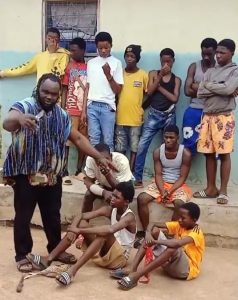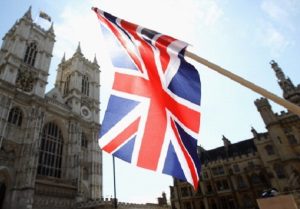Congo replaces top military chief amid eastern conflict
3 min readIn a significant move amidst the ongoing conflict in the Democratic Republic of Congo’s eastern region, President Felix Tshisekedi announced a major reshuffling of the country’s military leadership. This decision was made as the Congolese armed forces continue their battle against a growing number of armed rebel groups that have destabilized the mineral-rich eastern region.
According to state media reports on Thursday, the reshuffle resulted in the replacement of several senior military figures, including the Chief of General Staff of the Armed Forces, Gen. Christian Tshiwewe. Tshiwewe, who had held the position since October 2022, was replaced by Lt. Gen. Jules Banza Mwilambwe. The reason for the military reshuffle was not provided by state media, but it comes as the conflict in the east of the country continues to escalate.
Congo has been grappling with the presence of over 100 armed groups operating in the eastern provinces for years. The ongoing instability has led to severe humanitarian crises, displacing millions of people and claiming hundreds of lives. The region, rich in natural resources, has long been a battleground for armed groups vying for control, with the M-23 rebel group playing a central role in the fighting. The M-23, along with several other rebel factions, has been accused of receiving support from neighboring Rwanda, a claim that both Congo and the United Nations peacekeepers have reiterated.
As the conflict continues to intensify, President Tshisekedi’s decision to replace several high-ranking military officers reflects his desire to strengthen the country’s military leadership. Along with Tshiwewe’s replacement, other key military officials were also reassigned. Maj. Gen. Christian Ndaywel, the head of military intelligence, was among the officers affected by the reshuffle. Ndaywel had been involved in peace talks with Rwanda, which suggests the changes could also be a response to the stalled peace negotiations between the two nations.
The eastern region of the DRC has witnessed growing territorial losses to rebel forces over the past year, with groups like the M-23 continuing to gain ground in provinces like North Kivu. Rebel forces now control several areas in these regions, further complicating the already fragile security situation. The escalating violence has caused immense suffering, with displaced populations living in dire conditions in refugee camps, struggling with limited access to basic necessities like food, water, and healthcare.
The situation has become one of the world’s largest ongoing humanitarian crises, with over 7 million people displaced by the violence. The fighting has also taken a heavy toll on local communities, with civilians caught in the crossfire between armed groups and government forces. The humanitarian crisis continues to worsen as the conflict stretches into its second decade.
Attempts at peace talks between Congo and Rwanda have so far failed to yield significant results. A planned summit between the leaders of the two countries, which was supposed to take place in Angola on Sunday, was abruptly canceled. The Congolese presidency stated that Rwanda’s delegation refused to participate in the meeting, while the Rwandan government insisted that the talks had simply been postponed. The collapse of these talks highlights the ongoing tensions between the two nations, which have long been at odds over the presence of rebel groups in eastern Congo.
The role of Rwanda in the conflict remains a contentious issue, with accusations from Congo and international bodies that Rwanda has been supporting rebel groups, including the M-23, in a bid to exert influence over the region. Rwanda has denied these accusations, although the situation remains a source of diplomatic friction between the two countries.
With the recent reshuffling of Congo’s military leadership, President Tshisekedi is signaling his intent to confront the growing threat posed by armed groups in the eastern DRC. However, the road to peace and stability in the region remains uncertain, as both military and diplomatic efforts continue to struggle against entrenched rebel forces and regional tensions. As the country’s military leadership changes, there are hopes that these shifts will bring about a new approach to combating the ongoing violence and addressing the humanitarian crisis in one of Africa’s most troubled regions.





